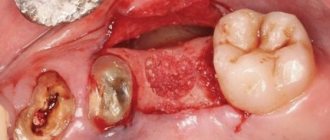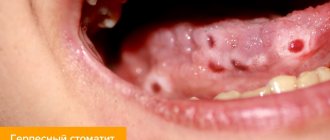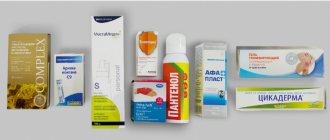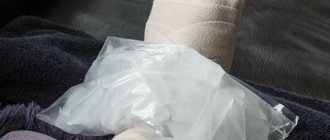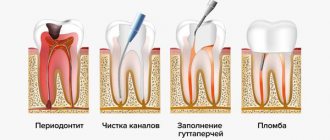Features of the parotid lymph nodes
Parotid lymph nodes are those located in front of the ear, running along the tragus from top to bottom from the side of the cheek
The parotid lymph nodes react acutely to the presence of an infectious pathogen in the human body. It is possible that the disease that caused the inflammation of these formations does not pose a serious threat to health or life. But also, enlargement of the lymph nodes in this part of the body can occur due to the development of a dangerous pathology, which, if progressed, leads to serious complications.
Anatomy and physiology
The parotid lymph node is located in the front of the ear, in a place that is close to the cheekbone and cheek. The second node can be felt closer to the lobe, behind the auricle.
Normal sizes
Inflammation of the lymph nodes located in front of and behind the ear can be determined by their size. In a healthy state, they are much smaller than the structures that are located in the neck or groin area.
The parotid lymph node, which is located on one side, has a size of 3-5 mm. This is the norm for men and women. If the lymph node undergoes an inflammatory process, it increases to 3 cm or more.
Causes of inflammation of the lymph nodes
Before determining the causes of inflammation of the lymph nodes, you should know what the lymphatic system generally consists of.
In general terms, lymph nodes are small, oval-shaped formations that are located in the body in large numbers. They are most often located in small groups along the flow of lymphatic vessels.
The parotid lymph node is located just behind the concha of the ear . But in a healthy state it is almost impossible to palpate it, it is too soft. But when the behind-the-ear node becomes inflamed, it can be easily determined by simply running your finger along the inside of the shell.
But its inflammation in most cases indicates that the patient has an ENT infection , such as otitis media, pharyngitis, otitis media, laryngitis, and so on. Quite often the cause of inflammation of the node behind the ear is an infection. But it may also be that such a symptom indicates a more serious illness, such as mumps or rubella.
Reason to visit the doctor
A person needs medical attention if they have symptoms that indicate inflammation and tenderness of the parotid lymph nodes.
It is not recommended to wait until the inflammation goes away on its own. If the pathological process is not suppressed, the disease will progress. As a result, the patient will experience complications that will significantly worsen his overall health.
If you suspect inflammation of the formations of the lymphatic system, you need to go to the hospital. With such problems, it is customary to go to an appointment with a therapist or infectious disease specialist.
Enlarged lymph nodes: causes
The main reason for contacting a specialist is an enlarged parotid lymph node. By itself, this education cannot become larger. Before starting therapy, it is necessary to find out the reasons that could lead to inflammation. A competent specialist will help you cope with this task.
The parotid lymph node becomes inflamed due to the influence of the following unfavorable factors on the human body:
- Inflammatory process in the tissues of the salivary glands.
- Acute bacterial infection.
- Staphylococcal or streptococcal infection.
- Long-term course of allergies.
- Conjunctivitis.
- Psoriasis.
- Dermatitis.
- Fungal infection.
- Inflammatory processes in the upper part of the respiratory tract.
- HIV infection.
- Diseases of the oral cavity.
- Tuberculosis.
- Oncological lesions.
- Ear inflammation.
If the lymph node located in front of the ear is inflamed, it means the person is sick. This disease can even be caused by damage to the skin, which is located as close as possible to the formations of the lymphatic system.
A slight change in the lymph node in the parotid zone on one side may indicate its active work. This applies to cases where there are no other symptoms of the lesion.
An enlarged node indicates parotid lymphadenitis. The disease requires adequate treatment under the supervision of a qualified physician.
Pain
Severe pain in the parotid lymph nodes is the main signal indicating an inflammatory process in the body
Inflammatory processes that affect the lymph node in the parotid zone are usually accompanied by pain. This symptom is one of the first to appear. Pain does not allow a person to ignore the ailment, so he is forced to see a doctor.
Pain syndrome is caused by the same factors that lead to enlarged lymph nodes.
Associated symptoms
If the parotid formations of the lymphatic system are inflamed, then only enlargement and pain will not do.
At the very beginning of the development of lymphadenitis, the patient does not show pronounced symptoms of the disease. A person may feel only slight pain at the site of the lesion. Most often it is detected behind the ear areas at the time of palpation.
If the disease is non-purulent in nature, then its symptoms will be limited to slight pain, enlargement of the nodes and their mobility when pressed.
The pathology, which is characterized by a purulent course, is accompanied by aggravated symptoms. It can be recognized by the following symptoms:
- Pulsating pain.
- Weakness.
- Increased local and general body temperature.
- Increased size of the lymph node.
- Pain when moving the jaw.
- Limited inflamed formation.
- Headache.
Having identified the symptoms of malaise that characterize lymphadenitis of the parotid region, you need to immediately seek medical help. The patient should be recommended a course of therapy that will relieve him of pain and other manifestations of the pathological process.
Methods for treating inflammation of the lymph nodes
If a patient has lymphadenitis, then simple symptomatic treatment is sometimes sufficient to treat it, which will help relieve the main symptoms of pain and eliminate the inflammatory process.
But it is strictly forbidden to use self-medication . This can lead to complications of the disease and even lead to blood poisoning.
is highly undesirable to use heating pads and a variety of warming procedures; this can lead to an increase in nodes and lymphadenitis moving into a more complex phase.
Only an experienced doctor can select adequate treatment . Most often, the patient is prescribed the following drugs and procedures:
- A broad-spectrum antibiotic that will help relieve inflammation.
- Painkillers and anti-inflammatory medications.
- If there is swelling, physiotherapy is prescribed.
If the patient has suppuration in the area of the lymph nodes, then their cleaning may be prescribed. And at the end of this procedure, the patient is prescribed a course of antibiotics and other drugs that will help the body recover.
Can a child's lymph node become inflamed?
A child's lymph node can become inflamed for various reasons. Therefore, if his ear hurts, do not self-medicate, but immediately consult a doctor .
Diagnostics
Laboratory tests will help determine the level of white blood cells in the blood
Lymph nodes in the parotid area and on the face become inflamed for various reasons. Therefore, first of all, it is necessary to find out the true factor that provoked the increase in the formation, which is located next to the ear area. An internist or an infectious disease specialist can examine an inflamed lymph node.
If you complain of pain and enlargement of the parotid lymph node, you should first contact a therapist. He must interview the patient and examine the affected area. Afterwards, if necessary, the therapist refers the person to a highly specialized specialist.
The results of the following diagnostic measures help to understand why the lymph nodes near the ears or near one ear are enlarged:
- Anamnesis collection. The doctor should study the symptoms of the disease in detail. Thanks to this, he will be able to make a diagnosis and exclude similar pathologies.
- External examination of the inflamed lymph node. Palpation is carried out, which allows you to determine the degree of inflammation and the presence of suppuration.
- Lab tests. Blood and urine samples are required. These tests help determine the level of leukocytes in the body and other important indicators.
- Instrumental diagnostics. The patient is given a referral for a fine-needle biopsy and ultrasound examination.
After the doctor receives the test results, he will be able to make a diagnosis for the patient. Based on this, a suitable treatment is selected for a person with an inflamed parotid lymph node.
What to do if the lymph node near the ear is inflamed?
Not everyone knows what to do if the lymph node near the ear suddenly becomes inflamed.
For lymphadenitis and other diseases that lead to an increase in the formation of the lymphatic system, it is strongly recommended to refrain from self-medication.
To relieve painful symptoms and reduce the size of the parotid lymph node to normal, full treatment is required. It must be prescribed by the attending physician.
Drug therapy
Therapy designed to treat inflammation of the lymph nodes in the ears (in the area of the hearing organs) involves the use of medications. Treatment is based on the following medications:
- Antibiotics (Azithromycin, Amoxicillin, Biseptol). The lymph nodes in the parotid area begin to ache when the body is susceptible to an infectious disease. Depending on the reasons for the development of the pathological process, the patient is prescribed drugs with antibacterial action;
- Painkillers (Ibuprofen, Paracetamol). They help cope with pain and other signs of illness that occur with inflammation of the lymph nodes.
- Antihistamines (Zyrtec, Telfast). They are prescribed to patients with inflamed lymph nodes. These drugs do not cause drowsiness or other unpleasant side effects.
For inflamed parotid lymph nodes, not only systemic but also local treatment is prescribed. It is recommended to apply bandages with compounds that help cope with bacterial pathogens to the affected areas. Streptocide or ichthyol ointment is suitable for such purposes. Their use is advisable if there are signs of extensive damage. Local medications will help cope with suppurations, which increase the symptoms of the pathology.
For enlarged and inflamed parotid lymph nodes, Dimexide is also prescribed. This remedy has a pronounced analgesic effect. It has a beneficial effect on the metabolic processes that occur in the affected area. Dimexide can be used for medicinal purposes only as prescribed by the attending physician.
It is strictly forbidden to try to warm up the lymph nodes. These actions can lead to suppuration.
To understand whether the therapy prescribed by the doctor is effective or not, it is enough to monitor the patient’s current condition. A positive result is indicated by a decrease in body temperature, a decrease in pain and the size of the lymph node in the parotid region. If after 3 days the person’s condition does not change, then the specialist should reconsider the course of his treatment and select more effective means.

